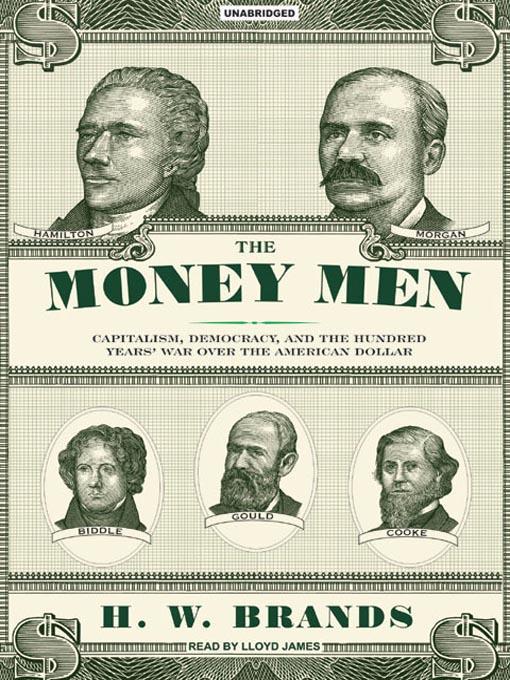
The Money Men
Capitalism, Democracy, and the Hundred Years' War over the American Dollar
فرمت کتاب
audiobook
تاریخ انتشار
2006
نویسنده
Lloyd Jamesناشر
Tantor Media, Inc.شابک
9781400172931
کتاب های مرتبط
- اطلاعات
- نقد و بررسی
- دیدگاه کاربران
نقد و بررسی

Who controls our nation's paper currency? H.W. Brands concentrates on five men -- Alexander Hamilton, Nicholas Biddle, Jay Cooke, Jay Gould, and J.P. Morgan -- who sought that power as he explains how commerce grew in the fledgling nation and U.S. monetary policy was formed. With dramatic stories like that of Jay Gould's manipulation of the gold market, Lloyd James gets to do more than recite facts. He's always easy to listen to, bringing history alive as stories while avoiding melodrama and making sure the facts come across. THE MONEY MEN makes the topic of economics understandable and interesting, relating it to overall trends in American history. J.A.S. (c) AudioFile 2007, Portland, Maine

August 21, 2006
Brands appraises five key players in American financial history: Alexander Hamilton, who advocated federal assumption of state Revolutionary War debt through the establishment of a national bank; Nicholas Biddle, who presided over the Bank of the United States when it failed under pressure from Andrew Jackson; Jay Cooke, who financed the Union through retail bonds during the Civil War; Jay Gould, who precipitated the Black Friday collapse of gold prices in 1869; and J.P. Morgan, who stabilized the financial panic of 1907. Each man, Brands explains, represented capitalism intertwined but in conflict with democracy. Capitalism promoted free trade and strong financial institutions, while democracy called for protectionism and financial institutions that helped customers instead of making insiders rich. This inherent tension, the author writes, was resolved by the 1913 compromise that created the Federal Reserve System. The author's generalizations, however insightful, make rigid organizing principles, given that different political and economic forces shaped each era. Focusing on one capitalist per episode also distorts the stories, as does lurching from crisis to crisis while glossing over the important consensus developments that occurred in between. Brands (Andrew Jackson
) delivers a competent but schematic general history.

























دیدگاه کاربران